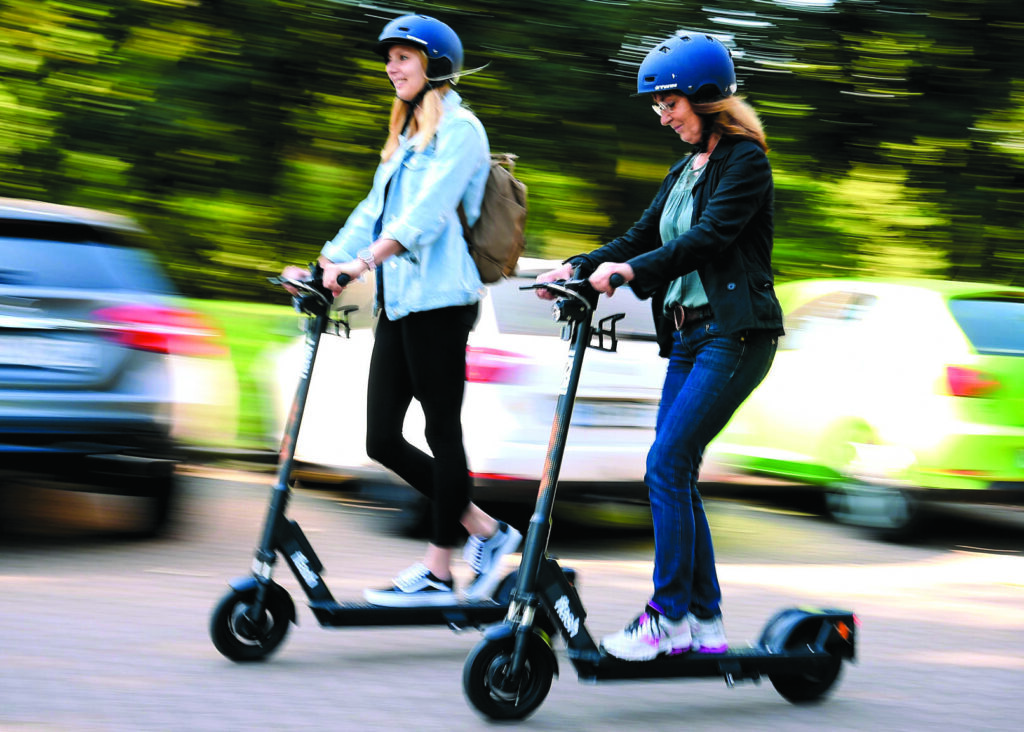
A franchise to operate Bird electric scooters in Moorhead is one step closer, with the city council approving a public hearing to be held this summer.
city council
Nancy Edmonds Hanson
Moorhead came one step closer to going for the Birds this week when the City Council approved calling a public meeting to hear residents’ opinions.
Bird, a company based in Santa Monica, California, approached the city in March for approval of establishing a fleet of its electric scooters on the public right-of-way near shopping, the college campuses and recreational area. Established in 2017, the fledgling firm is rapidly expanding its fleets in cities ranging in size from 5,000 to 200,000. It currently operates some 150 fleets in the U.S., Canada and Europe.
Riders over 18 can pick up a scooter near centralized locations, then pay for each minute of use. Equipped with headlights and taillights and with speeds limited to 15 mph, company spokeswoman Kate Shoemaker told council members the Birds are safe, environmentally friendly and fun to use.
At their first discussion last spring, council members asked for more information on potential issues surrounding the little vehicles, especially in cities of fewer than 50,000. Shoemaker reported that in 42 cities about the size of Moorhead – ranging from East Lansing and Saginaw, Michigan, to Fort Dodge, Iowa, and Isla Vista, California – only 15 incidents have occurred, the majority (10) in Fairfax, Virginia. No insurance claims have been filed for injuries.
According to city manager Dan Mahli, the Moorhead Police Department has expressed no concerns about the scooter. “They treat them like bicycles,” he said. Minnesota law specifies that motorized scooters cannot be operated on sidewalks, but must use the roadways.
Council member Brad Gilbertson was concerned about clutter when the dockless scooters are dropped off, especially after use by college students. Shoemaker pointed to plans to hire one or two full-time managers to manage that potential fleet of 100 in Moorhead; the manager will track, retrieve and reposition the scooters after use. Separate agreements would be required to use them on college campuses; otherwise, access would be limited by on-board software identifying the campuses as “no-ride zones.”
City manager Dan Mahli said that the city charter required companies like Bird using the public right-of-way to secure a franchise agreement with the city. A public hearing – yet to be scheduled – is the next step toward that goal. Both the company is also in the first stages of proposals to Fargo and West Fargo.
Five council members voted to direct city staff to proceed with arranging the hearing and developing a franchise agreement, with Gilbertson and Chuck Hendrickson dissenting.

